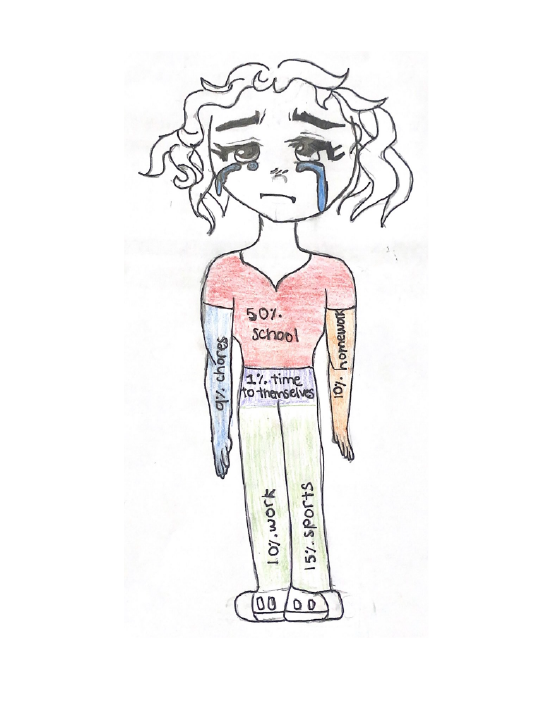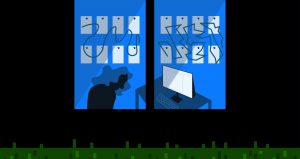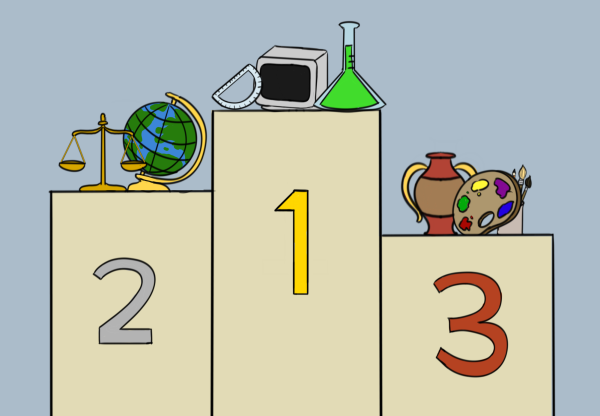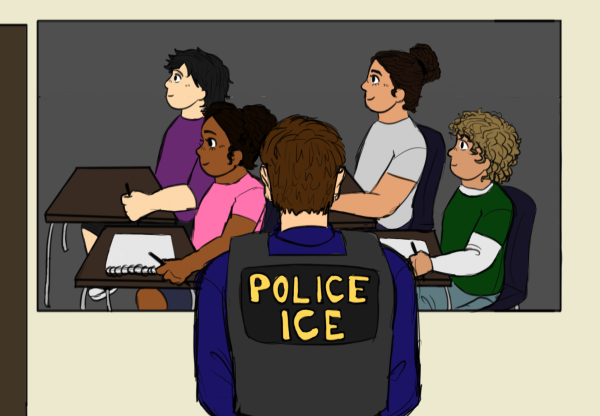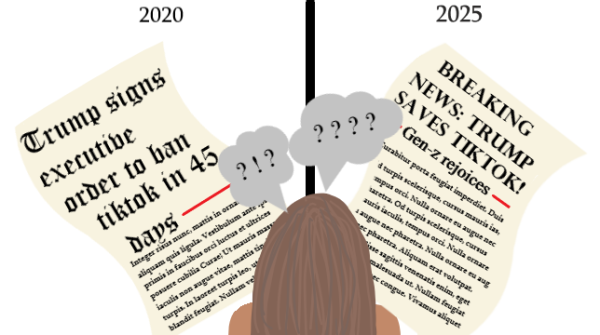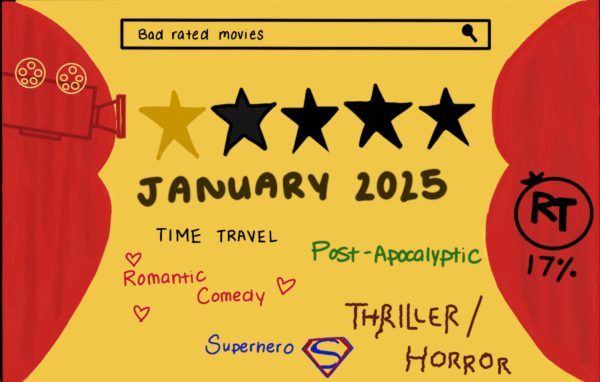Confined to the grind
The stress of dividing work often becomes overwhelming. For some people, it’s difficult to think of themselves among work that is needed to be done.
A student gets home from school. Feeling exhausted, the student grabs a quick snack from their kitchen to eat in their room. They sit down at their desk and take out their binder, filled with school work. The student immediately gets to work, pencil scratching against the paper and fingers flying across the keyboard.
The definition of grind culture—or hustle culture, according to Lewis Nathanial—is when working for longer hours at a time is normalized as a way to get to raw achievement or success. In other words, grind culture is a constant stream of work due to a mindset of striving for success. Grind culture can be applied to both work and academics.
High school students often find themselves participating in grind culture due to the competitive nature of academics. According to “The Need for a New Grading System” by Linda B. Nilson from Stanford, students in general are faced with the challenge of competing against each other through the current grading system. The grading system incentivizes performance rather than learning, which causes students to blame themselves for low grades. This would lead to students holding themselves accountable to achieve the grades needed for success.
In order to achieve the grades needed to fulfill students academic goals, they follow a routine that requires them to complete school work and extra credit without considering if the student has extracurricular activities. While doing so, they are constantly thinking about work and extracurriculars outside of school. As a result, students reserve little to no time for themselves because they’re so focused on completing work for each one of their classes.
Grind culture essentially supports this routine, where high school students are in the mindset that they need to constantly hustle to accomplish success. According to “Hustle culture and toxic productivity are ruining your brain” by Hannah Tiongsan, she recognizes that overworking is praised and glamorized by society because it’s thought to have provided results. However, the longer hours students work, it only sets up unrealistic and unhealthy standards of academic performance, such as working 100 or more hours per week, according to the founder, Chief Executive Officer, Chief Technology Officer and Chief Designer of SpaceX, Elon Musk.
However, Tiongsan calls out the toxic nature of grind culture. For example, working longer hours has been proven to be correlated with anxiety and depression systems, according to “Impact of working hours on sleep and mental health” published by Occupational Medicine. The study’s results further prove students’ experience with lack of sleep quality and maintained mental well-being on a daily basis due to longer work hours.
While students are focused on achieving success, there is no time to mentally recharge after completing multiple tasks at once. Due to the constant stream of work encouraged by grind culture, students often over-exhaust themselves both mentally and physically. According to Headversity, the stress hormone called cortisol is released during periods of work and leads to harmful mental and physical effects, such as heart disease, memory impairments and more.
Grind culture has been believed to increase productivity due to all the dedicated time towards completing work, but Headversity states, “if individuals are calm and less stressed, they experience improved productivity. So, by putting workers in a constant state of stress, hustle culture is actually paradoxically impairing productivity”. While in the grind culture mindset, students working overdrive to be productive actually reduces productivity because the lack of attention towards their mental well-being results in the opposite.
Although grind culture is widely glamorized by society and only encouraged by academic pressures, it proves to take a toll on students’ day-to-day performance. In order to combat grind culture, Samantha Radocchia, who has both participated and rejected in grind culture, first suggests understanding the toxic effects of constantly hustling because “[people] think what they’re doing is never going to be enough [and that] their competitor will outpace them.”
Radocchia then discusses the importance of balance. Balance comes in different forms for students, but it is essential for people to take mental breaks in order to re-energize and uplift their well-being rather than continually depleting it. Furthermore, incentives between periods of work can increase productivity compared to putting off rewards until the end. Lastly, recognition of hard work can allow long periods of rest.
Constant hustling and grinding to complete work—the heart of grind culture—is one that shouldn’t be encouraged. Despite being a tough habit to break, students must realize the heavy impact hustling has on their mental and physical health. Although success can be found through hustling and grinding, success is not solely limited to the end result; taking time through a process of achieving success proves to be much more efficient. Individual progression is not only found in success, but also in the process.

This year, I am co-Editor-in-Chief for 2022-2023. I’m a senior and a second-year Crusader staff member. Last year, I enjoyed my time serving as...

I'm a senior at Bonita Vista High School and this is my second year returning to the Crusader staff. I have been a Podcast Manager for the last two years...

